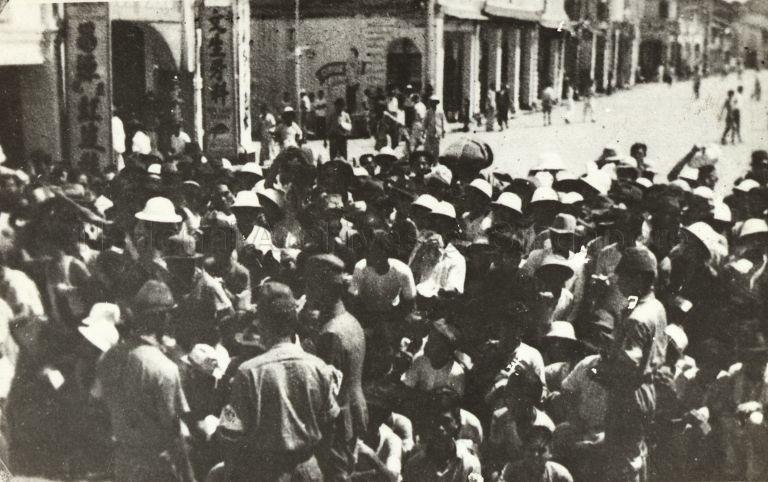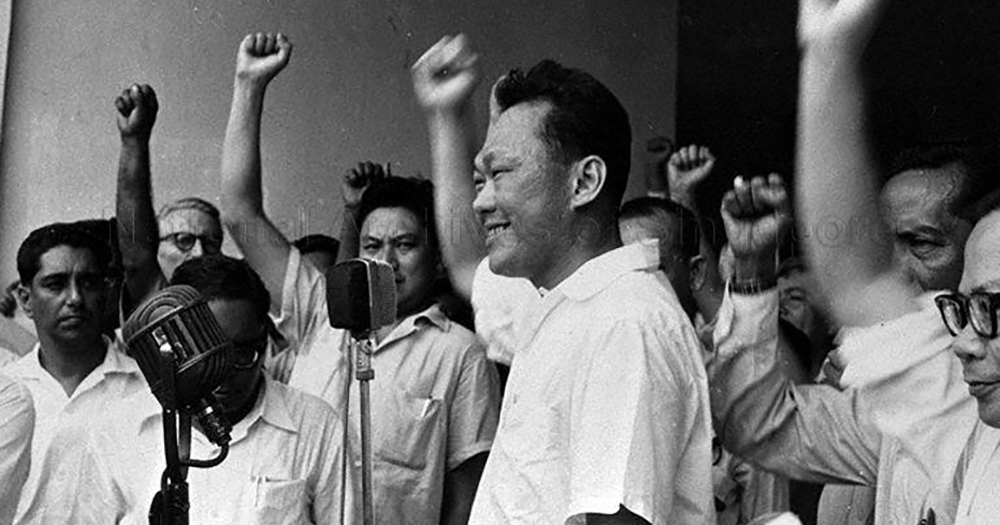What compelled Singapore's first prime minister Lee Kuan Yew to enter politics?
The answer can be found if one were to research on ministerial salaries.
Ministerial salaries debate
In a parliamentary debate on March 22, 1985, then-Prime Minister Lee cross swords with then-Member of Parliament for Anson, Joshua Benjamin Jeyaretnam, on ministerial salaries, citing the difficulties in getting good, talented people to serve the country.
In the midst of the debate, Lee revealed what compelled him to enter politics.
It was a long exchange, but if you're impatient, the main bit is in blue.
Mr Jeyaretnam: What is the difficulty?
The Prime Minister: People are not prepared to come forward. Really I did not persuade the Member for Kreta Ayer. It was the First Deputy Prime Minister who persuaded him. It was already difficult enough. We want him to list out his assets, his interests, what his wife does, and so on. Why should he? He would rather be himself. It is a genuine problem. The people capable of running Singapore can be counted in the 20s, total number.
Mr Jeyaretnam: You are suggesting the wrong motivation, completely.
The Prime Minister: No, Mr Speaker. This is a facing up to reality. It is not possible to reproduce the founder-generation. It is not possible to re-create the 1950s and the 1960s. Greater challenges are in store, but when they happen, the men will be put to the test.
If Members will look at Table 1A, they will find that 676 people pay more income tax than the Ministers. Now, I accept that stockbrokers, lawyers, doctors, dentists, earn more than my colleagues. But I cannot accept that there are 676 people who are more important to Singapore than at least three: the Minister for Finance who must be a heavyweight, or we are in trouble; the Minister of Defence who must be another heavyweight, or we are in deeper trouble; and the Minister for National Development who has the biggest budget of any Ministry in an expanding and building phase of Singapore. I cannot accept that anybody in Singapore makes decisions which have more repercussions than these three.
Why have I come in? Because it was a compulsion.
Mr Jeyaretnam: What made you?
The Prime Minister: A Japanese soldier slapped me in 1942. Yes, indeed. In 1942, as I was crossing the Red Bridge at Kampong Java Road, during the Japanese Occupation, to look for my aunt because I was alone in the house with the gardener in Norfolk Road, I did not know that I had to bow to a Japanese soldier. He said, "Kure" and he beat me up, slapped me. I wondered what right he had to do that. And I questioned why the British came back and lorded over me. And we became more and more drawn into revolution.
You cannot repeat that, Mr Speaker, Sir. I claim no special virtue. We are the product of our times, Those who did not have it, they fell by the wayside. Fortunately, a few of us had it, and we are unlikely to be intimidated by the Member for Anson.
You read that right. A slap by a Japanese soldier during the Occupation triggered Lee into "revolution" and set the country's course towards future independence.
[related_story]
Japanese cruelty
Lee's account of this infamous slap and other instances of Japanese brutality were also recounted in his autobiography, The Singapore Story: Memoirs of Lee Kuan Yew.
The Japanese were known to be extremely cruel, especially towards the Chinese, during the Japanese Occupation from 1942 to 1945.
People were forced to bow to soldiers out on the streets or risk being slapped, or worse, killed.
Random Chinese males were pulled off the streets and subjected to mass killings, known as the Sook Ching, a form of ethnic cleansing.
 Sook Ching mass screening in 1942. Via NAS.
Sook Ching mass screening in 1942. Via NAS.
Lee himself was almost killed, if not for the quick thinking of a rickshaw puller who provided him with shelter when Lee escaped from a Sook Ching screening.
In his memoirs, Lee also mentioned how these first-hand accounts of violence shaped his perceptions of human nature and his political philosophy.
Read about Singapore's descend into Syonan-to:
Top image via NAS.
If you like what you read, follow us on Facebook, Instagram, Twitter and Telegram to get the latest updates.
